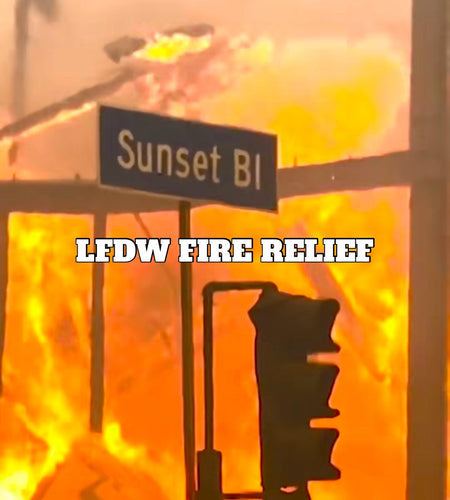
LOS ANGELES FIRE RELIEF FUND
Share
LFDW has a connection to the city of Los Angeles. Personally it's one of my favorite places on earth. If we've ever talked about LA I've probably told you about how great the Pacific Palisades are. The entire neighborhood is now gone.
Both me and Hannah know and work with a lot of people in the city. In October we were out there for an event. Our warehouse and fulfillment center is in Hollywood, on Santa Monica not far from Hollywood Forever Cemetery. One of the fires, which is now contained, was blocks from there.
The city defunded the Fire Department. We will be donating all profits from two products, our Outlaw Shit Los Angeles Trucker Hat and our LFDW On The West Coast event shirts to the Los Angeles Fire Department Foundation.
You can buy them below:




